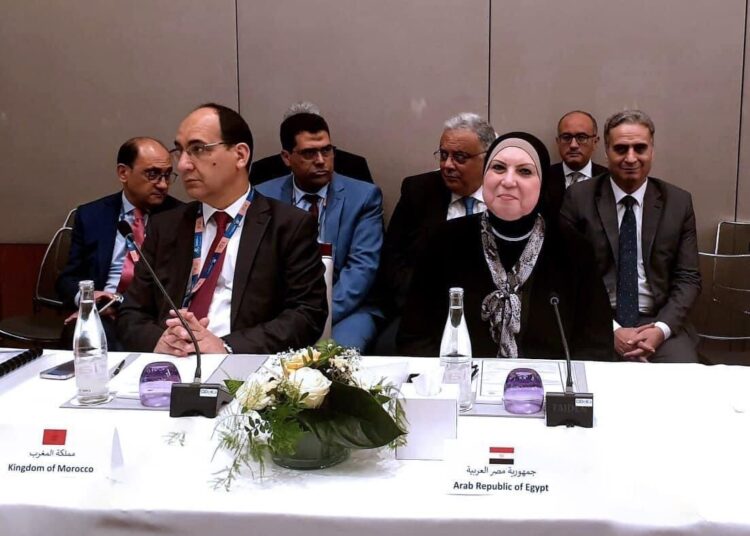Egyptian Trade and Industry Minister Nevine Gamae has voiced support for the role played by the Arab group at the World Trade organization to protect Arab rights during WTO negotiations.
An ambitious Arab trade agenda is needed, Gamae advised during a meeting with her Arab counterparts on the sidelines of the 12th WTO ministerial conference, which kicked off in Geneva, Switzerland, Sunday.
Gamae also stressed the importance of reaching a coherent stance regarding all issues on the WTO agenda.
Coordination is also needed with groups representing developing countries at the WTO with the aim to enhance joint action that would help achieve sustainable development, the minister said.
Indeed, the successive global economic and health crises have greatly affected all world countries, with international institutions downgrading expectations for world growth rates to 5.5 percent in 2021 and 3.2 percent in 2022, she noted.
Gamae touched upon problems regarding global supply chains, which spilled over into the world’s industrial and production performance.
She called for unified world efforts to outline a vision and effective solutions to such problems, while taking into consideration the possible impact on the Arab world.
While acknowledging the important role played by the WTO to serve the multilateral trading system, the Egyptian minister still underlined the need to start discussing in-house reforms in a comprehensive and transparent way.
It is important to reach a consensus about a balanced “reform agenda” that would boost development, Gamae told her Arab counterparts.
A final communiqué was released at the end of the meeting, with Arab trade ministers stressing their commitment to principles and goals announced in the Marrakesh Agreement establishing the World Trade Organization. They agreed on the need to act to enhance the multilateral trading system.
The Arab trade ministers also voiced concern about repercussions of food price hikes and problems of supply chains for food security.
More resilience is needed to empower developing countries and help them boost agricultural production capabilities, the ministers stressed.
They called on WTO members to not impose any restrictions on agricultural exports and major inputs of agricultural production.






Discussion about this post